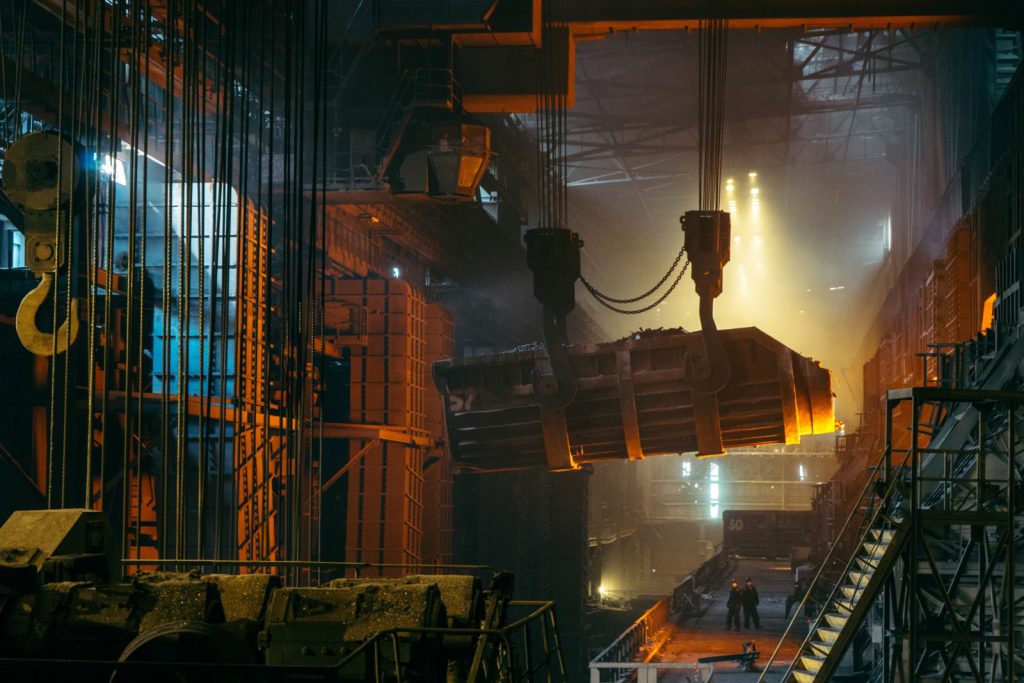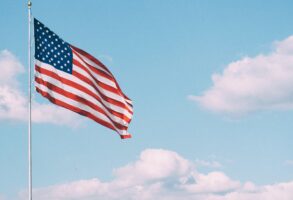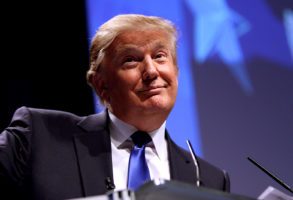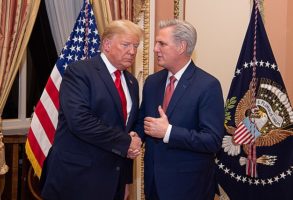
Published January 19, 2017
We’ve been instructed not to take our new president literally, but instead seriously (in the felicitous phrasing of Salena Zito). As I write, there are hints that the inaugural address will focus on the theme of “America First.” President-elect Trump may or may not be familiar with the historical taint of that phrase, but in any case the meaning he attaches to it has been clear enough.
Throughout his career, Mr. Trump has been consistent on two issues: trade and admiration for strong men. He departs from the consensus about American leadership in the post-World War II era. Rather than seeing U.S. security guarantees and promotion of trade as providing the means through which the world (and the U.S.) has seen unprecedented growth, peace, and prosperity, he thinks we’ve been chumps.
“America First” is a declaration of No More Mr. Nice Guy. This is the link between his views on NATO and trade. In the former case, he appears to think that the NATO alliance is a favor we do for an ungrateful Europe. While it would be a very positive development if every NATO member were to spend the agreed-upon 2 percent of GDP on defense, there is reason to doubt that Trump’s comments are simply veiled threats to achieve that. Is it pure coincidence that while denigrating NATO, Trump has shown excessive friendliness to Putin, whose chief goal (just ask General Mattis) is undermining the alliance?
Trump has offered differing explanations for his tweets about NATO being “obsolete.” He has mentioned defense spending. He has also cited failure to cooperate on terror. But Article V has only ever been invoked for Europe to help America. Many NATO countries contributed troops and other support to the war in Afghanistan, including the U.K., Germany, Italy, Turkey, Norway, and the Netherlands, among others.
Unlike his views on immigration, abortion, single-payer, ISIS, and countless other topics, Trump has been consistent on trade since the 1980s. In 1987, he bought a full-page ad in the New York Times denouncing trade with Japan. He seems genuinely to believe that trade impoverishes us, which is odd for a businessman, because trade is really just another word for business.
It is true that our economy has seen very limited growth over the course of the past decade or so, but to finger NAFTA and other trade deals as the culprit, instead of, say, overregulation or high taxes, is perverse. Trump cites the trade-deficit figures with China and others to prove that we are “losing” in a zero-sum competition and that jobs are being “outsourced” due to stupid leadership by politicians. These are Democratic talking points. Or were.
Manufacturing jobs are being lost to automation above all. Also, commerce (another word for trade), unlike war, has winners on both sides of the transaction, not winners and losers. The U.S. economy boomed during the 1980s and 1990s despite large trade deficits. Those who claim that the U.S. is running a trade deficit in goods due to unfair trade practices of trading partners never seem to make the case that our trade surplus in services (large and growing) is due to our own unfair practices.
Trump has made a number of fine cabinet appointments, but the “trade triumvirate” of Commerce Secretary Wilbur Ross, U.S. Trade Representative Robert Lighthizer, and the head of a new entity called the National Trade Council, Peter Navarro, are quite worrying advocates of so-called nationalist economics. Like Mr. Trump, they see trade as a form of warfare. It isn’t. But trade wars can lead to real wars, thus the saying “If goods don’t cross borders, armies do.”
The possible ironies here are voluminous. 1) The people who will suffer from trade protectionism are the poor and working classes who will pay higher prices for goods, and see their jobs lost due to higher prices of imports (half of imports are used in American manufacturing, some of which go to exports). 2) China is benefitting even now from other nations’ fear of U.S. retrenchment on trade. Instead of American-led free-trade agreements, China is lining up Pacific nations for a Regional Comprehensive Economic Partnership, in which Beijing calls the tune. 3) The U.S. is the world’s largest trading nation. Protectionism is a punch in our own eye. To “punish” China or anyone else for selling us too many products, Mr. Trump can impose higher prices only on Americans.
The president has a great deal of independent power on trade matters. Here is something for Republicans in Congress to mull: If President Trump, the great businessman, ignites a trade war and tanks the economy, voters will draw the lesson “Those free-market Republicans have done it again. Capitalism equals depression.”
— Mona Charen is a senior fellow at the Ethics and Public Policy Center. Copyright © 2017 Creators.com








